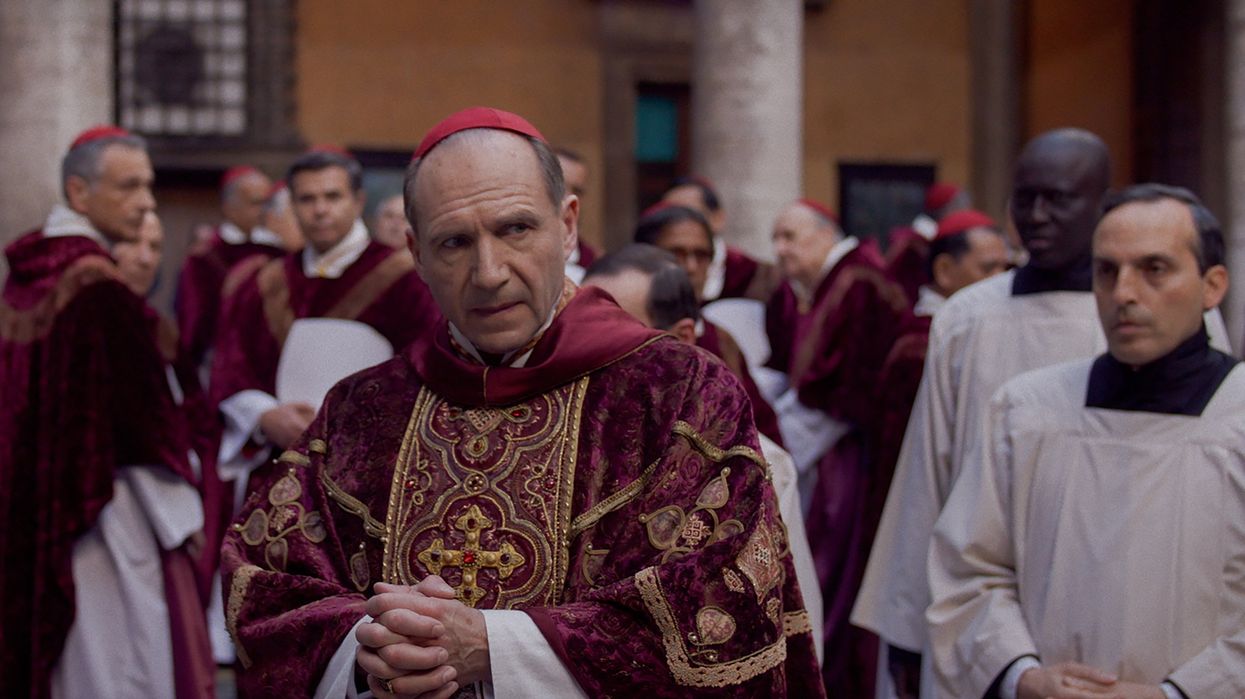Schmidt is a columnist and editorial board member with the St. Louis Post-Dispatch.
Certitude in viewing the other side as malevolent might just break the country apart, but putting faith in one another and our institutions might be the glue that can keep us together.
Just days before Election Day, I chose to go see a movie in a theater as a way to break away from the horse race politics and hyperpolarized rhetoric. Little did I know the movie would provide me with valuable insight into the very thing I was trying to escape.
“Conclave,” directed by Edward Berger and based on a novel by Robert Harris, is the fictional story of Roman Catholic cardinals gathering in Rome to elect a new pope.
In the movie, cardinals from all over the world descend on the Eternal City and begin the process of choosing a successor to the recently deceased Holy Father, who died of a suspected heart attack.
The dean of the College of Cardinals, Cardinal Lawrence (played by Ralph Fiennes) leads his colleagues as they sequester themselves in the Sistine Chapel and begin the process of choosing a new papal leader.
Just as in our own political reality, there were conservative, liberal and even moderate factions of cardinals in the movie. The cardinals debated deeply held views and discussed issues that were tearing apart fragile coalitions. Each caucus believed its ideology would best serve the millions of Roman Catholics around the world.
The movie delved deep into the quest for power, why individuals want it and the depths some might take to achieve it. And like our current political situation, corruption, ambition and selfishness emerged as important factors.
Prior to being locked into the chapel for deliberations, the cardinals celebrated Mass. It is here Lawrence delivers a homily “from the heart,” saying: “There is one sin which I have come to fear above all else … certainty.” He goes on to describe how “certainty is the great enemy of unity … the deadly enemy of tolerance.”
Lawrence provides further wisdom to his fellow clerics: “Our faith is a living thing precisely because it walks hand in hand with doubt. If there was only certainty and no doubt, there would be no mystery and therefore no need for faith.”
This idea of certainty being the great enemy of unity and tolerance can apply to our domestic political circumstance as much as it can mean to a person of faith or to a fictional group of cardinals debating about the future of the papacy.
Our current toxic hyperpartisanship creates the illusion that the “other side” is absolutely evil or that the country as we know it will end if candidate X is elected. How many times in the last few months have you heard something like,“Donald Trump is a fascist and if he is reelected, our democracy will end”? Or, “If Vice President Kamala Harris wins, we will be living in a socialist, communist hellscape”?
Negative partisanship extends beyond the candidates themselves and onto their voters as well, allowing Americans to paint with a broad brush of certitude that the other sides’ voters are also nefarious; and therein lies the danger.
In the coming weeks, the losing side must try to understand why the winning side won and not blame their fellow citizens who voted for the other candidate.
Yuval Levin, author of “ A Time to Build: From Family and Community to Congress and the Campus, How Recommitting to Our Institutions Can Revive the American Dream,” defines an institution as “The durable forms of our social life, the shapes, the structures of what we do together, the ways in which we act in the world, not just as isolated individuals and not just as clumps of people, but as organizations, as structures of people working together toward a common end.”
No spoilers here, but ultimately the cardinals elect a new pope, because despite the flaws of humanity, the institution produced a worthy candidate. The cardinals in the conclave placed their trust in, and believed in, the institution itself and allowed it to do its work. While fictional, the make-believe conclave acted in the exact way Levin lays out.
It is incumbent on the electorate to reject the inevitability narratives and embrace open-mindedness if we are going to remain united states. We also must have faith in one another as Americans and work towards rebuilding and strengthening our republic’s institutions. We should also reject the absolutism and certainty of impending doom.
Let us hope that real life follows fiction and there is more joy and unity than pain and anger when the white smoke of our general election bellows out of its chimney.



















 From left to right: Gabriel Cardona-Fox, Bud Branch, Joe Concienne
From left to right: Gabriel Cardona-Fox, Bud Branch, Joe Concienne 
Trump & Hegseth gave Mark Kelly a huge 2028 gift